Video shows how Putin opponent Alexei Navalny was really poisoned
Newly-released video show’s how Alexei Navalny’s team believe th Putin critic was poisoned, via an innocuous water bottle in his hotel room.
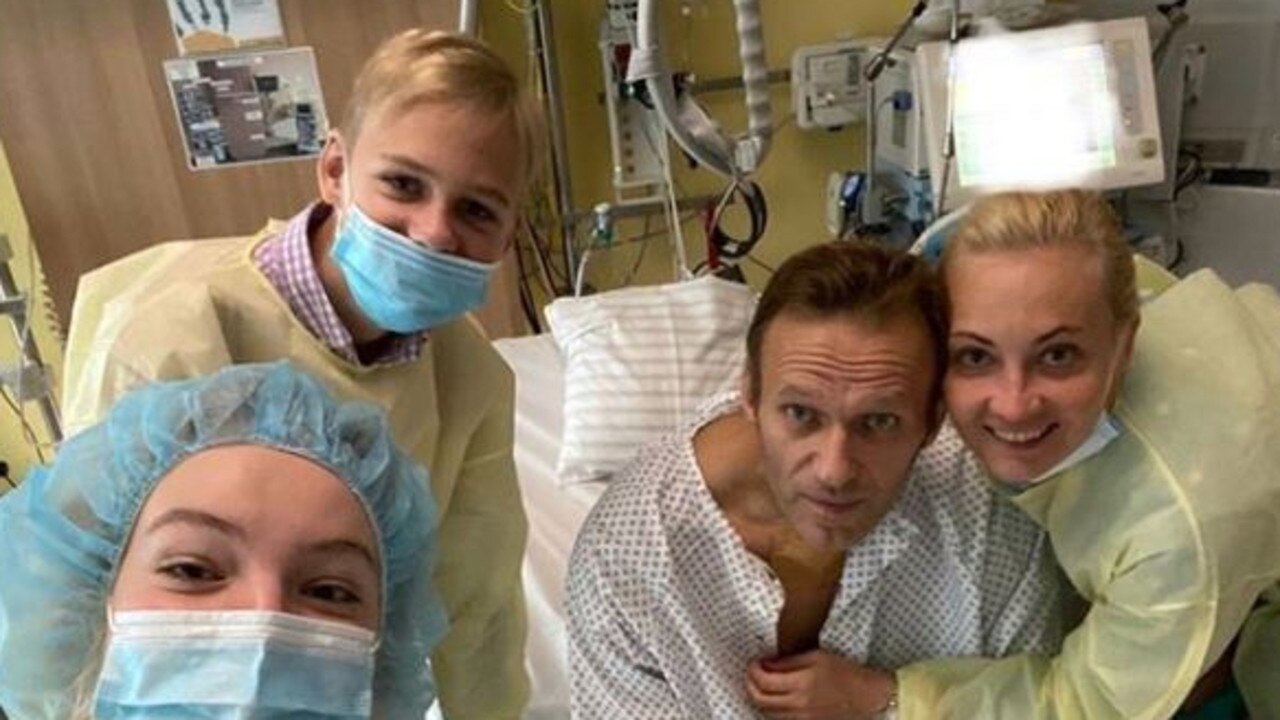
Newly-released video on the Instagram account of poisoned Russian opposition leader Alexei Navalny reveals how the nerve agent Novichok was administered via a water bottle, rather than on a flight as first thought.
The nerve agent was detected on an empty water bottle in his hotel room in the Siberian city of Tomsk where he stayed before taking the flight and falling ill.
The video posted on Mr Navalny’s Instagram account shows members of his team searching the room he had just left in the Xander Hotel in Tomsk on August 20.
They went to the hotel room to search just an hour after learning Mr Navalny had become violently ill in suspicious circumstances.
A post written in Russian says: “It was decided to gather up everything that could even hypothetically be useful and hand it to the doctors in Germany.
“The fact that the case would not be investigated in Russia was quite obvious.”
The video of the hotel room shows two water bottles on a desk, and another on a bedside table which Mr Navalny’s team, wearing protective gloves, collect and place into blue plastic bags.
The post reveals that two weeks later, “a German laboratory found traces of Novichok precisely on the bottle of water from the Tomsk hotel room,” the post said.
“And then more laboratories that took analyses from Alexei confirmed that was what poisoned Navalny,” the post says.
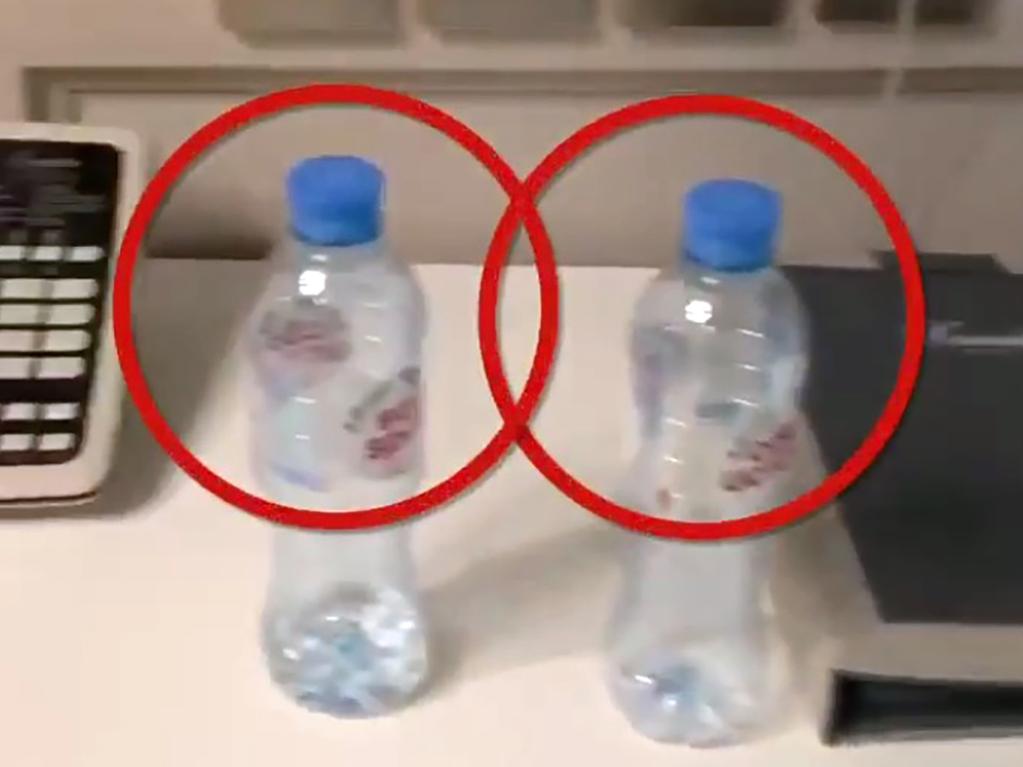
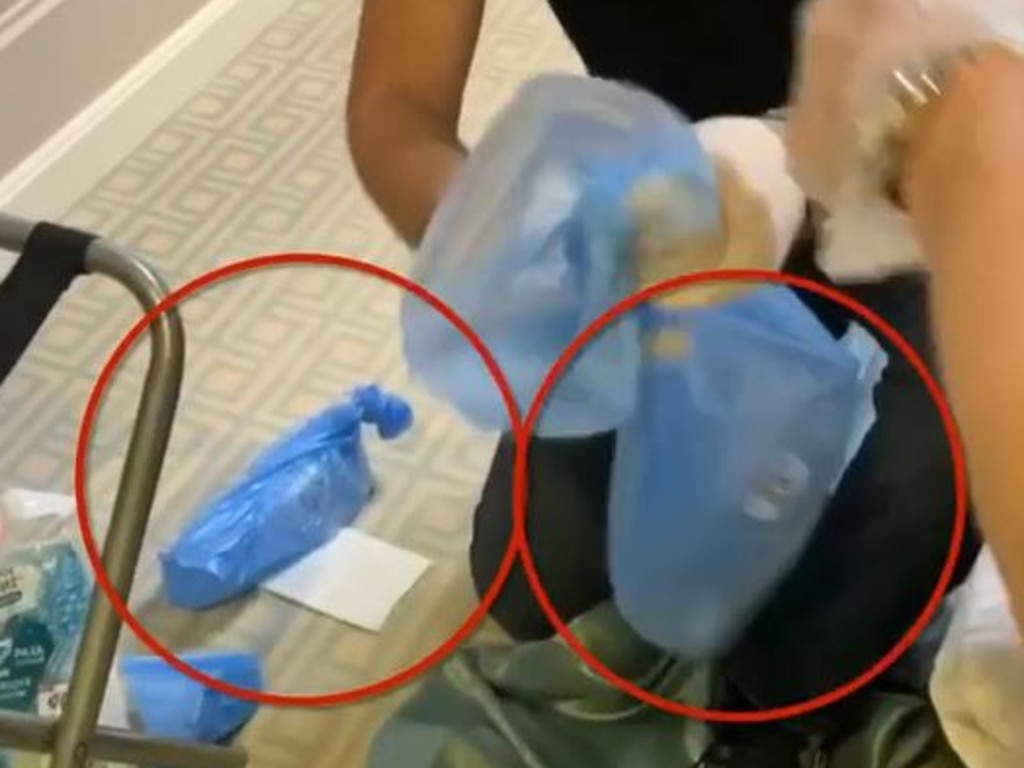
Originally, it was supposed Mr Navalny had been administered the nerve agent via a cup of tea he drank at Tomsk airport.
The hotel room video comes a day after Mr Navalny posted on Instagram about the latest steps he has made in his recovery from the poisoning.
He spoke out for the first time since waking from his coma nearly a month after he was stricken with Novichok.
The 44-year-old lawyer and anti-corruption campaign, who is Russian President Vladimir Putin’s fiercest critic, posted his recovery on Instagram to his 1.8 million followers.
Navalny, who is believed to have woken from his coma last week, had his first day breathing without a ventilator.
Looking gaunt and surrounded by his family, he is photographed sitting up in a hospital bed.
On Instagram he wrote, “Hi, this is Navalny. I miss you. I still can hardly do anything, but yesterday I was able to breathe on my own all day.
“I did not use any outside help, not even the simplest valve in my throat.
“It’s an amazing process and underestimated by many. I liked it very much … recommend.”
Despite his upbeat mood, Navalny could barely smile, while his wife Yulia and children beamed at the camera.
On August 20, Navalny was poisoned during a flight from the northwestern Russian city of Tomsk to Moscow in what was presumed to have been a politically-motivated assassination attempt.
RELATED: First batch of Russian virus vaccine produced
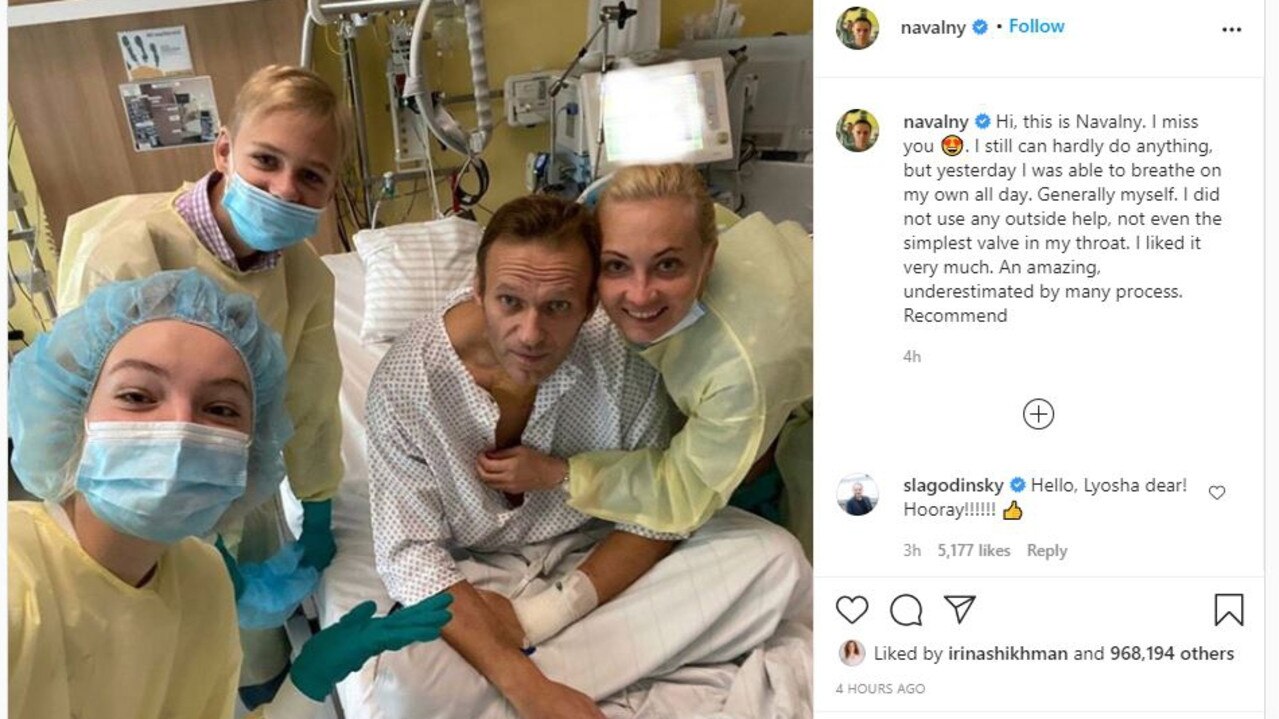
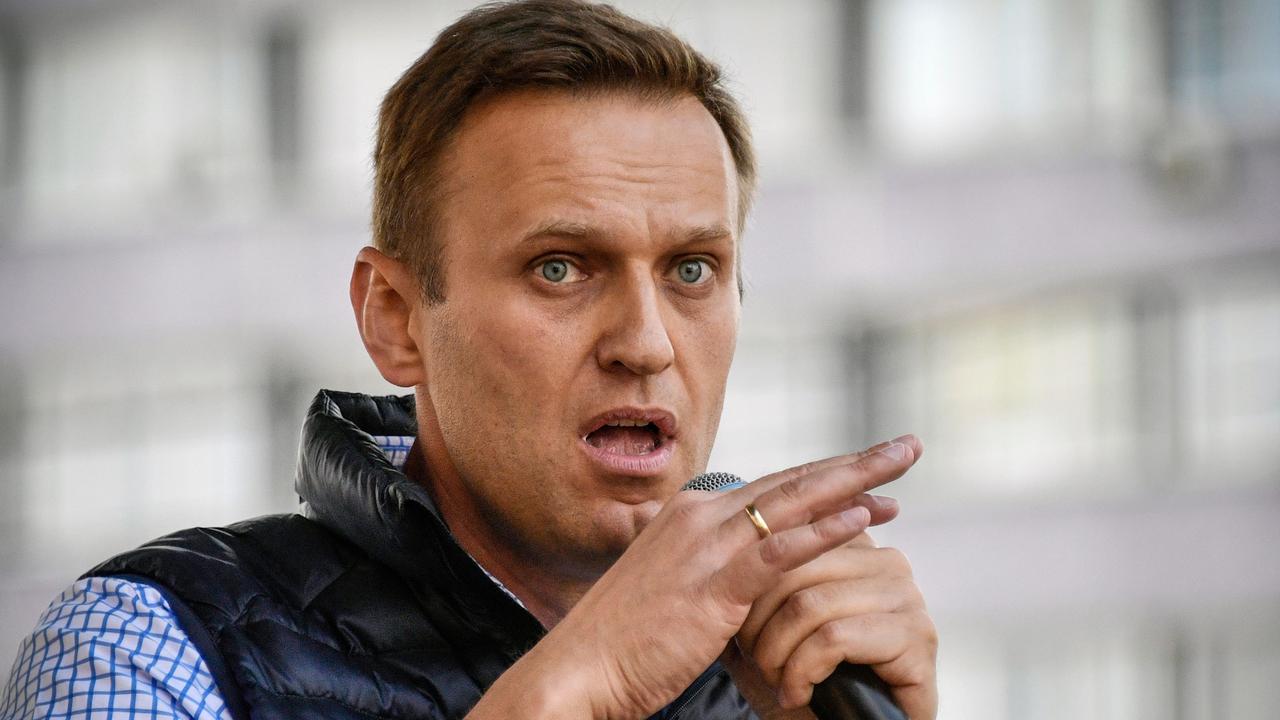
Novichok, a Soviet-developed chemical weapon, is the same substance used in the attack on former Russian spy Sergei Skripal and his daughter Yulia in the UK in 2018. Both survived.
When Navalny fell ill soon after takeoff, he was airlifted to Berlin where he remains in hospital, although he has expressed a desire to return to Russian as soon as possible.
Germany has said there was “unequivocal evidence” that Navalny was poisoned with Novichok.
But Moscow has dismissed the findings, saying its doctors found “no trace” of poison in his blood or urine.
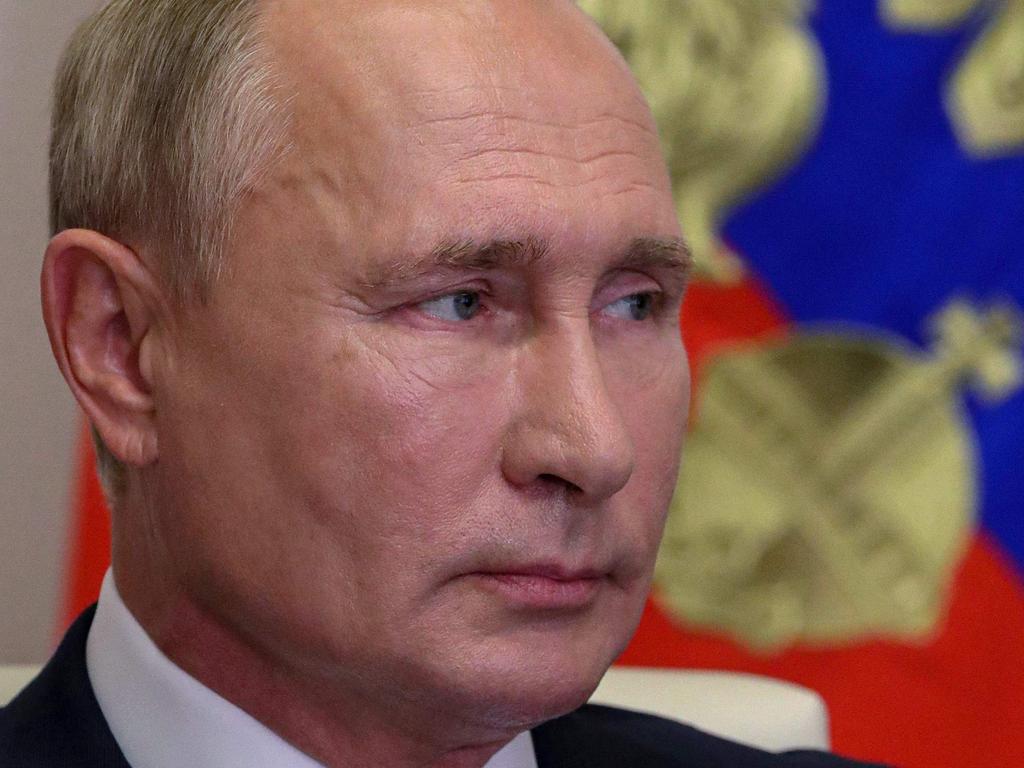
The potentially fatal nerve agent can be ingested or inhaled, but can also be absorbed through the skin.
The symptoms are convulsions, shortness of breath, nausea, vomiting and diarrhoea, profuse sweating, and heightened then decreased heart rate.
A passionate campaigner described by some as “the man Vladimir Putin fears most”, Navalny has previously organised demonstrations against Putin, and described Putin’s party as one “of crooks and thieves”.
Navalny has been arrested several times by Russian authorities and spent time in prison.
The Kremlin has denied any involvement of the Russian state in the attack on him.
In a statement, the Kremlin said it would be glad to “welcome this Russian citizen” back home.
Putin is said to avoid directly referring to Navalny by name.




